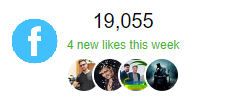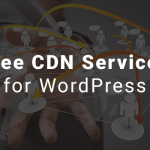What "forced" entrepreneurs teach us about succeeding in business — Quartz at Work – Quartz
Discover
Editions
More from Quartz
Follow Quartz
These are the core obsessions that drive our newsroom—defining topics of seismic importance to the global economy.
These are some of our most ambitious editorial projects. Enjoy!
Our emails are made to shine in your inbox, with something fresh every morning, afternoon, and weekend.
President, Shopify
Think of the term “entrepreneur” and you likely picture a young guy from a tech startup in Silicon Valley. But this is an exceedingly narrow definition of the term.
Entrepreneurs come in so many varieties—many of whom wouldn’t self-identify with the “entrepreneur” label. I spoke to someone from India the other day who told me, “No one calls themselves an entrepreneur here, but everyone is one. They just call it work.” They also might call it survival. And they’ve earned their stripes as entrepreneurs whether they use the term or not.
These entrepreneurs are part of a worldwide category of entrepreneurship that we don’t talk enough about: those who are forced to create businesses out of necessity. That category is exploding now, thanks to the Covid-19 pandemic.
In July 2020, more than 500,000 new businesses were created in the US alone—nearly double the increase from the same month a year prior. On the Shopify platform, new store creations increased by 79% year-over-year.
These increases are happening all over the world, and the trend continues. When times are hardest, why is there such a surge in new businesses? Because employed people whose livelihoods have been suddenly disrupted often have no choice but to go into business for themselves.
You might think this puts these founders at a disadvantage, since they likely haven’t attended business school or been dreaming about launching their passion project for years—but the data tell us otherwise. Studies show that firms founded by forced entrepreneurs are more likely than average to survive, innovate, and receive venture backing. Why? Because they have to.
Here are three lessons we can learn from forced entrepreneurs.
My grandparents were Holocaust survivors who immigrated to Canada in 1956 during the Hungarian revolution. They landed on Canadian soil with no money and no education. To make ends meet, my grandfather began selling eggs at a farmer’s market in Montreal, and he did this for the rest of his life. He didn’t give a damn about eggs. But he cared an awful lot about surviving, and building a better life for his descendants.
Fast forward to 2001: I was in my first year of university and my family lost everything in the recession. In my mind, I had only one option: I needed to start making money to fund my education and support my family. So I started a t-shirt business. Was I passionate about t-shirts? I mean, I wore them, but no. Was I hell-bent on surviving? Yes.
This may be an unpopular opinion, but passion is not a prerequisite to be an entrepreneur or to build a successful, meaningful business. There are many other reasons to start a business, and plenty of ways to figure out what that business should be—from keyword research; to solving a problem you’ve identified; to filling a unique, niche gap in the market.
My grandfather’s egg stand, Le Capitaine, still stands in Montreal today. For me, it’s a constant reminder of all that can be accomplished when your back is up against the wall.
Many people will never experience first-hand the pressure of running their own business. They may not fully understand the urgency that comes from having no other option than to succeed.
Ever heard the expression “burn the boats”? The story goes that during the Spanish conquest of Mexico in 1519, Spanish commander Hernán Cortés deliberately destroyed his own ships so that his men would have only two options: conquer or die.
When you have no choice but to survive, you get really resourceful.
A friend of mine often says, “creativity happens when the constraints get applied.” To really feel these constraints, you have to act like an owner. This was one of Shopify’s core values in our early days: Pretend every penny you spend is your own. Act as though you have only one option—to succeed. Use these constraints to help you excel. When you feel you have skin in the game, it’s much easier to put yourself in the shoes of a forced entrepreneur and reap the benefits that come with that.
It should be noted here that forced entrepreneurs face a lot of pressure. There’s no plan B, no option to quit; they need their business to succeed. If there was ever a recipe for anxiety, that sounds like it.
I’ve always been an anxious person. It took me years to realize my anxiety would never go away, that it was part of me—and that it was actually my superpower. Because I naturally wake up at 6 am and begin my day like a bat out of hell, I can start being productive in those quiet hours before my colleagues come online. I can harness my anxiety to imagine everything that could possibly go wrong, and then create guardrails to make sure those things don’t happen. This has served me well as an entrepreneur, and if you battle anxiety, it can serve you well, too.
To turn my anxiety into positive energy, I’ve learned to schedule my days down to the minute, including booking in family time, meals, and social gatherings. If I know my calendar matches my priorities, I can breathe easier knowing I can be fully present in what’s in front of me. I also prioritize movement every single day, whether it’s yoga, strength training, or a long walk with my wife. And I practice guided meditation daily. I do these things so I can show up as my best self every day for me, my family, and my team. I do them so I can manage, and benefit from, my anxiety.
Always remember the Marshmallow Challenge—a design exercise developed by Palm Inc.’s Peter Skillman, who would assemble groups of people including engineers, lawyers, MBAs, and toddlers. He’d give each group 20 pieces of spaghetti, a meter of tape, a piece of string, a marshmallow, and 18 minutes to build the tallest freestanding structure supporting that marshmallow.
The MBAs usually failed the hardest. They were too busy making plans, without enough time to execute. But guess who won? The kindergarteners. They didn’t plan—they just built and built. And they were the only ones to ask for more spaghetti.
When you fail quickly, you learn quickly. You can react, iterate, and improve in far less time than if you made elaborate, untested plans.
Tobi Lütke, our CEO at Shopify, doesn’t use the word failure. Instead, he calls it “the successful discovery of something that did not work.” In the company’s early days, Tobi would randomly unplug servers to see how long it took the team to get Shopify back up and running. This earned him the nickname Chaos Monkey, and this type of chaos is still celebrated and implemented in the company today, like the random deletion of recurring meetings from our calendars to force us to reevaluate their necessity.
Chaos and failure are powerful tools that forced entrepreneurs can keep in their tool belt. They teach us how to pivot and adapt—and those are essential skills for any entrepreneur, whatever their reason for starting a business.
📬 Kick off each morning with coffee and the Daily Brief (BYO coffee).
By providing your email, you agree to the Quartz Privacy Policy.
Make business better™
Discover
Topics
More
© 2021 Quartz Media, Inc. All rights reserved.
↑ Beam me up, Scotty
Discover
Editions
More from Quartz
Follow Quartz








